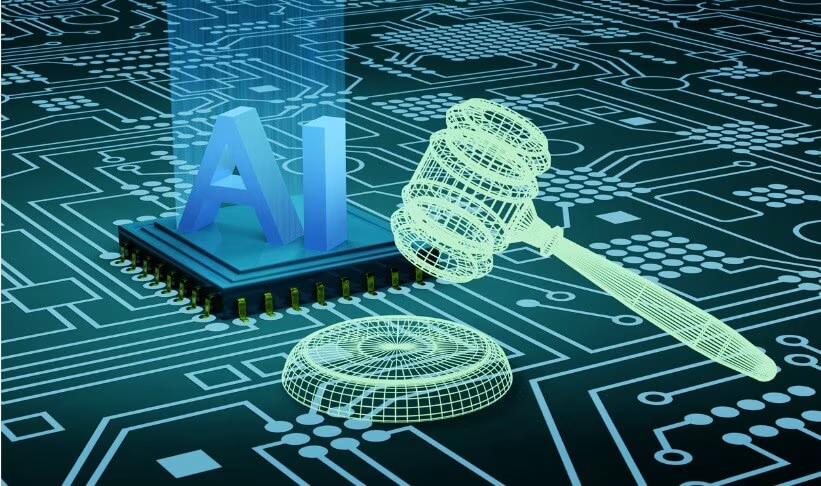Automation and artificial intelligence (AI) have radically transformed workplaces worldwide, promising efficiency, enhanced decision-making, and innovation. Yet alongside this promise lies a quandary: how do organisations capitalise on AI's potential without eroding trust or crossing ethical boundaries? For HR leaders and decision-makers, this tension is especially pronounced, as AI increasingly influences sensitive areas like hiring, performance management, and employee engagement.
While AI can amplify productivity and streamline workflows, its unchecked use risks overshadowing its benefits. Biased hiring algorithms, invasive surveillance, and productivity scoring systems, for example, can corrode workplace morale, perpetuate inequality, and undermine trust. The lesson is clear - no AI system, however sophisticated, should replace human oversight, ethics, and accountability. Here's why.
The Trust Problem With AI
The first, and perhaps most universal, challenge with AI is trust. AI often operates as a "black box," where its decisions and processes are opaque, even to its designers. When a hiring algorithm rejects a candidate or labels an employee as underperforming, decision-makers may struggle to understand how the system reached its conclusion. This lack of transparency erodes confidence, making employees question whether they are being evaluated fairly.
Consider the widely publicised example of a global tech giant whose AI hiring tool was found to discriminate against women. By analysing historical hiring data - dominated by male candidates - the system associated "male" traits with higher employment suitability. Without robust checks, such bias intrudes into decision-making, penalising qualified talent and perpetuating systemic inequality.
Biased Algorithms and Inequality
AI's propensity to reinforce bias stems from its design. Algorithms are only as neutral as the data fed into them, and historical datasets often reflect systemic inequities. Left unexamined, AI outputs can amplify these biases under the guise of objectivity.
An illustrative case comes from an investment company deploying AI to screen REIT job applications. The system favoured candidates from a narrow range of prestigious universities, inadvertently discounting applicants with diverse educational backgrounds despite having strong potential. This demonstrates how AI can unintentionally stymie organisational diversity unless carefully governed.
Perhaps even more troubling is the tendency for organisations to accept such outcomes as the "truth." Viewed through AI's computational lens, subjective human decisions acquire unwarranted credibility, leaving little room for individual circumstances or unique human qualities to be accounted for.
Surveillance and Productivity Scoring
Beyond hiring, AI's role in monitoring employees has become equally contentious. Systems predicting "employee productivity" by tracking keystrokes, screen time, or email activity are proliferating, often justified as tools to improve efficiency. Yet, these tools can backfire.
Take the example of an employee assigned a low productivity score due to reduced activity during brainstorming periods - a critical, but less visible, element of creative work. The algorithm's inability to interpret nuanced human behaviours incites misjudged feedback, unfair penalties, and disengagement. Furthermore, such systems risk fostering surveillance cultures that prioritise numbers over trust and impact.
The fixation on productivity metrics also exacerbates an "always-on" culture where employees feel pressured to constantly perform, potentially leading to burnout. While businesses may achieve short-term gains, these practices can erode long-term organisational health.
Ethics, Empathy, and the Human Factor
AI lacks the most fundamental qualities required for equitable decision-making - ethics and empathy. Machines do not understand context, human struggles, or the subtleties of workplace dynamics. Organisations that defer critical decisions entirely to algorithms risk creating environments where individuals feel alienated and undervalued.
For instance, a company that automates workforce reductions based purely on efficiency scores disregards the complexities of human lives. What about a valuable employee struggling temporarily due to personal challenges? A manager would likely respond with understanding and support, fostering loyalty and encouraging recovery. AI, absent these human considerations, may offer no such grace.
The Call for Governance
The risks are clear. But action can - and must - be taken to ensure AI is implemented ethically. Leaders must prioritise governance frameworks that safeguard fairness, transparency, and accountability.
Essential Steps for AI Governance in HR
1. Bias Auditing
Organisations should regularly audit AI systems for bias, testing algorithms against diverse datasets to identify discriminatory trends. Independent reviews conducted by third parties can add credibility and impartiality.
2. Data Transparency
Employees need clarity over how AI tools collect, process, and use their data. Transparent communication - complete with opt-out options where feasible - empowers employee trust while holding organisations accountable.
3. Human Oversight
AI should never replace human decision-making in matters impacting individuals' livelihoods, such as performance reviews, hiring, or career development. Instead, it must function as a tool that supplements human judgement, not a substitute for it.
4. Ethical Design
Ethical considerations must guide AI development from the start. This means involving diverse teams in the design process, incorporating feedback from potential end-users, and aligning AI goals with organisational values.
At the Intersection of Technology and Humanity
AI is neither inherently good nor bad - it is a tool shaped by its creators and users. For leaders, the challenge is to wield this tool responsibly. The organisations most likely to succeed in the AI revolution will not simply be those with the best algorithms. Success belongs to those who balance innovation with empathy, refuse to cede critical decisions to machines, and place ethical principles at the core of their AI strategies.
By adopting robust frameworks around bias auditing, data transparency, and ethical oversight, HR leaders and decision-makers can create workplaces where AI enhances human potential rather than diminishing it. Ultimately, no algorithm can replace the judgement, fairness, and compassion of a well-trained, thoughtful human being. Let's ensure our workplaces reflect that understanding at every turn.



